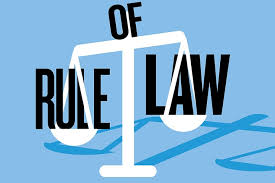
Foreign direct investment means companies purchase capital and invest in a foreign country. For example, if a US multinational companies, such as Louis Vuitton built a factory for making handbags or Starbucks opening coffeehouse in Pakistan; this would count as foreign direct investment. The rule of law is a critical determinant of Foreign direct investment in developing countries.
The law is aimed at promoting and protecting foreign investments and will spell out the rights of foreign investors and remove the grey areas. Strong courts and adherence to the rule of law contribute to political stability, a concern for foreign investors. The rule of law is positively associated with Foreign direct investment.
It is argued that the ideal legal system for attracting FDI is efficient. An inefficient legal system increases transaction costs by failing to provide cheap mechanisms for enforcing legal rights and obligations. Low transaction costs are ensured where a host state’s laws are of good quality that is, modern-and its courts and bureaucracies are provided with adequate infrastructure, and trained and properly compensated staff. Although their implementation is likely to be constrained by financial considerations, these recommendations are not particularly contentious. There also exists a broad international consensus that deficiencies in “the lawmaking process, the public administration and enforcement of laws, and the judicial interpretation of laws ‘ in developing countries can result in uncertainty.’ Legal systems that fail to provide credible information regarding the status of legal rights and obligations must be reformed in order to create greater certainty for foreign investors.
Foreign direct investment has an element of risk. Countries with an uncertain political situation will be a major disincentive. Also, an economic crisis can discourage investment.

Governments that establish independent courts commit to protecting investment against both citizens and the government itself. Independent courts provide investors with a clear venue for defending their rights and help to reduce overall uncertainty. Corruption reduces efficiency, raises costs, decreases productivity, and increases instability. As a result, investors are more attracted to countries that can control corruption because these countries make it easier for investors to plan for the future. Finally, rights protection is one of the main outcomes of the rule of law.
Contract and property rights protection is the rule-of-law element with the largest effect on FDI in the developing world. The protection of these rights can provide investors with a guarantee that their investment will be secure, particularly against government expropriation. Though government expropriation of foreign investment is becoming rare, it remains a threat to businesses and embodies the greatest danger investors face in foreign countries. Moreover, investors use personal relationships as a means to mitigate the risk of a weak rule of law.

The legal sector has wide-ranging economic impacts, as it has close connections with the institutional architecture of trade, commerce, and the attractiveness of the local market to attract investment from overseas.
